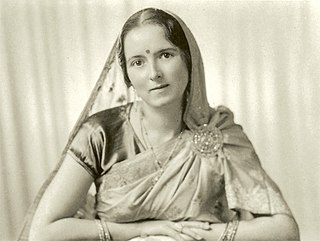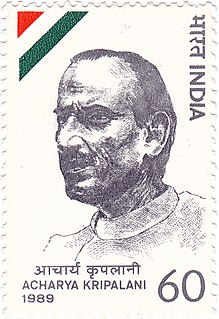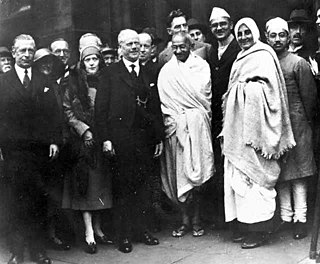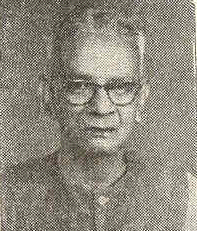 W
WAbdul Samad Khan Achakzai, commonly known as Khan Shaheed and Baloch Gandhi, was a Pashtun nationalist and political leader from the then British Indian province of Baluchistan. He founded the Anjuman-i-Watan Baluchistan, which was allied with the Indian National Congress.
 W
WSayyid Jamāl al-Dīn al-Afghānī, also known as Sayyid Jamāl ad-Dīn Asadābādī and commonly known as Al-Afghani, was a political activist and Islamic ideologist who travelled throughout the Muslim world during the late 19th century. He is one of the founders of Islamic Modernism as well as an advocate of Pan-Islamic unity in Europe and Hindu–Muslim unity in India, he has been described as being less interested in minor differences in Islamic jurisprudence than he was in organizing a united response to Western pressure. He is also known for his involvement with his follower Mirza Reza Kermani in the successful plot to assassinate Shah Naser-al-Din, who Al-Afghani considered to be making too many concessions to foreign powers, especially the British Empire.
 W
WAlluri Seetarama Raju was an Indian revolutionary involved in the Indian independence movement. After the passing of the 1882 Madras Forest Act, its restrictions on the free movement of tribal people in the forest prevented them from engaging in their traditional podu agricultural system, which involved shifting cultivation. Alluri led the Rampa Rebellion of 1922, during which a band of tribal people and other sympathisers fought in the border areas of the East Godavari and Visakhapatnam regions of Madras Presidency, in present-day Andhra Pradesh, against the British Raj, which had passed the law. He was referred to as "Manyam Veerudu" by the local people.
 W
WDr. Choithram Gidwani was born at Hyderabad (Sind) on 25 December 1889 and received his entire education there. After passing the matriculation examination his spirit of service impelled him to accept a teacher's job at Bubak in Dadu District, but finding little scope for his activities there he chucked it up returning to Hyderabad, he joined the Medical School there, and after completing the course he entered Government service as a Medical Officer. Dr. Choithram came in contact with Mahatma Gandhi at the Congress Session held in Bombay in 1915. In the following year, he attended the Session at Lucknow as a delegate from Sind. He successfully organised 'hartal' at Hyderabad in March 1919 in protest against the Rowlatt Act. Dr. Choithram was sent to jail several times, first in 1922 when as editor of the "Hindu" his writings were regarded as seditious; then in 1930 when he broke the Salt Law at Karachi; again during the Civil Disobedience Movement of 1932 and also in 1933 for defying the Govt. orders not to leave Hyderabad; in 1940 for making a fiery speech at Lahore; and finally in 1942 for joining the Quit India Movement launched by Gandhiji. Whenever outside jail, besides attending to his political activities he did valuable humanitarian work such as running a charitable dispensary, supplying medicines to the poor and the needy free of charge, collecting donations for Pathshalas and Narishalas, organising relief work during floods and earthquakes as also during communal riots, and taking measures to prevent persecution of one community at the hands of the other. He died in the Northcote Nursing Home at Bombay on the night of 13 September 1957. Dr. Choithram was an embodiment of service and self-sacrifice. Way back in 1924 Gandhiji wrote about him in the Young India - "He has sacrificed everything and turned into a 'Faqir' all for the cause of his country."
 W
WKhagendra Chandra Das was an Indian entrepreneur and proprietor of the Calcutta Chemical Company. Under his leadership, the company became one of the most well-known businesses of the Swadeshi movement, and was well-known for Margo (soap) and a number of other products.
 W
WColvin Reginald de Silva was a Cabinet Minister of Plantation Industries and Constitutional Affairs, prominent member of parliament, Trotskyist leader and lawyer in Sri Lanka. He was one of the founders of the Lanka Sama Samaja Party – the first Marxist party in Sri Lanka.
 W
WSarala Devi was an Indian independence activist, feminist, social activist, politician and writer. She was the first Odia woman to join the Non-cooperation movement in 1921. She became the first woman to be elected to the Odisha Legislative Assembly on 1 April 1936. She was also the first female Speaker of the Odisha Legislative Assembly, the first woman Director of Cuttack Co-operative Bank, first female Senate member of Utkal University, and the first Odia woman delegate of the Indian National Congress. She was the only representative from Odisha on President Dr S. Radhakrishnan's Education Commission.
 W
WSavitri Devi Mukherji was a French-born proponent of Nazism who served the Axis powers by committing espionage on the forces of the Allies of World War II in India. She was later a leading member of the Nazi underground during the 1960s.
 W
WDevdas Mohandas Gandhi was the fourth and youngest son of Mohandas Karamchand Gandhi. He was born in South Africa and returned to India with his parents as a young man. He became active in his father's movement, spending many terms in jail. He also became a prominent journalist, serving as editor of Hindustan Times. He was also the first pracharak of the Dakshina Bharat Hindi Prachar Sabha (DBHPS), established by Mohandas Gandhi in Tamil Nadu in 1918. The purpose of the Sabha was to propagate Hindi in southern India.
 W
WMohandas Karamchand Gandhi was an Indian lawyer, anti-colonial nationalist, and political ethicist, who employed nonviolent resistance to lead the successful campaign for India's independence from British rule, and in turn inspired movements for civil rights and freedom across the world. The honorific Mahātmā, first applied to him in 1914 in South Africa, is now used throughout the world.
 W
WGopal Krishna Gokhale listen (help·info) [ˈɡoːpaːl ˈkrɪʂɳə ˈɡoːkʰleː] was an Indian liberal political leader and a social reformer during the Indian Independence Movement. Gokhale was a senior leader of the Indian National Congress and the founder of the Servants of India Society. Through the Society as well as the Congress and other legislative bodies he served in, Gokhale campaigned for Indian self-rule and for social reforms. He was the leader of the moderate faction of the Congress party that advocated reforms by working with existing government institutions.
 W
WAllan Octavian Hume, CB ICS was a British member of the Imperial Civil Service, a political reformer, ornithologist and botanist who worked in British India. He was one of the founders of the Indian National Congress. A notable ornithologist, Hume has been called "the Father of Indian Ornithology" and, by those who found him dogmatic, "the Pope of Indian ornithology".
 W
WKamal Nath Jha (15 August 1923 - 11 February 2003 was a freedom fighter, social activist, Bihar state legislative assembly member, Rajya Sabha member and later an Indian National Congress Lok Sabha Member of Parliament from the Saharsa.
 W
WAbdul Ghaffār Khān, nicknamed Fakhr-e-Afghan, "Pride of Pashtuns", Bādshāh Khān, or Bāchā Khān, "king of chiefs"), was a Pashtun independence activist who worked to end the rule of the British Rule in India. He was a political and spiritual leader known for his nonviolent opposition; he was a lifelong pacifist and devout Muslim. A close friend of Mahatma Gandhi, Bacha Khan was nicknamed Sarhadi Gandhi in India by his close associate Amir Chand Bombwal. Bacha Khan founded the Khudai Khidmatgar movement in 1929. Its success triggered a harsh crackdown by the British against him and his supporters, and they suffered some of the most severe repression of the Indian independence movement.
 W
WJivatram Bhagwandas Kripalani, popularly known as Acharya Kripalani, was an Indian politician, noted particularly for holding the presidency of the Indian National Congress during the transfer of power in 1947 and the husband of Sucheta Kripalani. Kripalani was a Gandhian socialist, environmentalist, mystic and independence activist.
 W
WSucheta Kripalani, was an Indian freedom fighter and politician. She was India's first woman Chief Minister, serving as the head of the Uttar Pradesh government from 1963 to 1967.
 W
WHussain Ahmad Madani was an Indian Islamic scholar, serving as the principal of Darul Uloom Deoband. He was among the first recipients of the civilian honour of Padma Bhushan in 1954.
 W
WMadeleine Slade, also known as Mirabehn or Meera Behn, was a British citizen who left her home in Britain to live and work with Mohandas Gandhi, the leader of the Indian Independence Movement. She devoted her life to human development and the advancement of Gandhi's principles. She was the daughter of the British Rear-Admiral Sir Edmond Slade.
 W
WSuresh Chandra Mishra also known as Pandit Suresh Chandra Mishra was the freedom fighter and member of First Lok Sabha during 1952 - 1957 from Monghyr constituency of Bihar. Besides being a politician, in 1920, Mishra had actively participated in the Non-cooperation movement which was launched by Mahatma Gandhi aimed at obtaining full independence from the British rule in the country.
 W
WSyed Fazl-ul-Hasan, known by his pen-name Hasrat Mohani, was an Indian activist, freedom Fighter in the Indian independence movement and a noted poet of the Urdu language. He coined the notable slogan Inquilab Zindabad in 1921. Together with Swami Kumaranand, he is regarded as the first person to demand complete independence for India in 1921 at the Ahmedabad Session of the Indian National Congress.
 W
WJawaharlal Nehru was an Indian independence activist and, subsequently, the first Prime Minister of India, as well as a central figure in Indian politics both before and after independence. He emerged as an eminent leader of the Indian independence movement, serving India as Prime Minister from its establishment in 1947 as an independent nation, until his death in 1964. He was also known as Pandit Nehru due to his roots with the Kashmiri Pandit community, while Indian children knew him better as Chacha Nehru.
 W
WMangal Pandey was an Indian soldier who played a key part in the events immediately preceding the outbreak of the Indian rebellion of 1857. He was a sepoy (infantryman) in the 34th Bengal Native Infantry (BNI) regiment of the British East India Company. In 1984, the Indian government issued a postage stamp to remember him. His life and actions have also been portrayed in several cinematic productions.
 W
WP. S. Nataraja Pillai was an Indian politician, freedom fighter and Member of Parliament during the 3rd Lok Sabha elections held in 1962. He served as the Adviser to the Travancore government at Delhi in 1948 and finance minister of the Travancore-Cochin state from 1954 to 1955.
 W
WVinayak Damodar Savarkar, commonly known as Swatantryaveer Savarkar or simply Veer Savarkar in Marathi language, was an Indian independence activist and politician who formulated the Hindu nationalist philosophy of Hindutva. He was a leading figure in the Hindu Mahasabha.
 W
WSayeed Mohammed was an Indian Odia educationist and philanthropist from Cuttack. In 1913 he founded the Muslim Seminary at Cuttack, which is regarded as the second nationalist school of Odisha. Sayeed is known for his activism against the British in the early 1900s. He was one of the prominent members of the Utkal Sammilani. Sayeed along with Ekram Rasul co-founded the All Odisha Khilafat Committee in 1922.
 W
WGiani Zail Singh was the seventh President of India serving from 1982 to 1987. Prior to his presidency, he was a politician with the Indian National Congress party, and had held several ministerial posts in the Union Cabinet, including that of Home Minister. He also served as the Secretary-General of the Non-Aligned Movement from 1983 to 1986.
 W
WBadruddin Tyabji was an Indian lawyer, activist and politician during British Raj. Tyabji was the first Indian to practice as a barrister of the High Court of Bombay who served as the third President of the Indian National Congress. He was one of the founding member and first Muslim president of Indian National Congress.
 W
WUzair Gul Peshawari was an Islamic scholar and an Indian freedom struggle activist who actively participated in the Silk Letter Movement.
 W
WBhalchandra Vaidya, also known as Bhai Vaidya, was an Indian politician who served as the Home Minister of the Indian state of Maharashtra, an revolutionary, Member of Legislative Assembly of the state of Maharashtra, Mayor of Pune city, veteran Socialist leader and head of the Socialist Party of India.